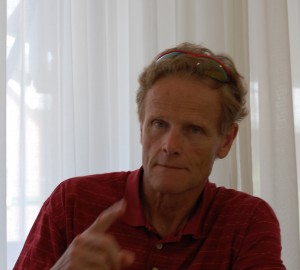Professor Stroeve conducts fundamental work on colloid and surface science, self-assembled monolayers, supramolecular structures on surfaces, supported lipid bilayers, transport in colloids and tissues, nanotechnology, bio-nanotechnology, renewable energy, solar energy, nuclear energy, thermoelectrics, biomass transformation to fuels and membrane separations. He has developed mathematical models and compared theoretical predictions to experimental results for reactive transport in heterogeneous suspensions, in colloidal solutions and in media containing nanoparticles. In nanotechnology, he is working on the nanostructure of polyion-surfactant complexes, polycation-polyanion complexes, self-assembled monolayers, and nanoparticle-polymer composites. His group developed a method on the nucleation and growth of nanoparticles in ultrathin layer-by-layer polyion films. His group has synthesized a variety of nanoparticles and modified the NPs’ surfaces with polymers to improve biocompatibility. In collaborations with LLNL, Professor Stroeve and his students have developed nanowire field effect transistors, coated with supported lipid bilayers containing proteins, and explored the use of these devices for biosensing. Professor Stroeve has created nanostructured surfaces of arrays of nanofibers, nanotubes and nanocables, and applied these to nanostructured solar cells, and surfaces that change the contact angle in the presence of magnetic fields. In the renewable energy area, he is the Director of the California Solar Energy Collaborative (CSEC) on the UC Davis Campus. CSEC is a member of UC Solar, a systemwide collaborative research program for solar energy. Further, he has been involved in studies on the transformation of biomass to liquid fuels.
See Professor Stroeve’s research site.





